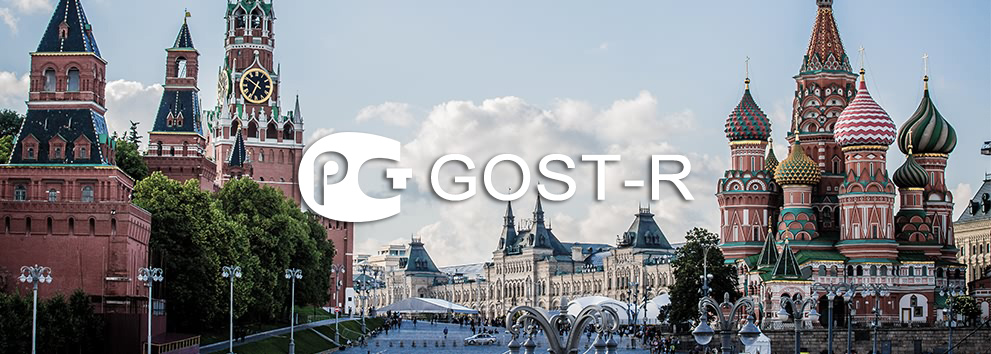India UAV system regulations
India UAV system regulations,
India UAV system,
▍What is GOST-R Declaration?
GOST-R Declaration of Conformity is a declaration document to prove goods are complied with Russian safety regulations. When the Law of Product and Certification Service was issued by Russian Federation in 1995, compulsory product certification system came into force in Russia. It requires all products sold in Russian market to be printed with GOST mandatory certification mark.
As one of methods of mandatory conformity certification, Gost-R Declaration of Conformity bases on inspection reports or quality management system certification. In addition, Declaration of Conformity has the characteristic that it can only be issued to a Russian legal entity which means the applicant (holder) of the certificate can only be a Russian officially registered company or foreign office that registered in Russia.
▍GOST-R Declaration Type and Validity
1. Single Shipment Certificate
Single shipment certificate is only applicable to specified batch, specified product stipulated in a contract. Specific information is strictly under control, such as item name, quantity, specification, contract and Russian client.
2. Certificate with validity of one year
Once a product is granted the certificate, manufacturers can export products to Russia within 1 year without limit of shipment times and quantities to specific client.
3. Certificate with validity of three/five years
Once a product is granted the certificate, manufacturers can export products to Russia within 3 or 5 years without limit of shipment times and quantities to specific client.
▍Why MCM?
●MCM possesses a group of engineers to study Russian latest regulations, ensuring latest GOST-R certification news can be shared accurately and timely with clients.
●MCM builds close cooperation with the local the earliest-established certification organization, providing stable and effective certification service for clients.
▍What is EAC?
According to The Relevant Common Criteria and Rules of Technical Regulations for Kazakhstan, Belarus and the Russian Federation which is an agreement signed by Russia, Belarus and Kazakhstan on October 18 2010, the Customs Union Committee shall devote to formulating uniform standard and requirement to ensure the safety of product. One certification is applicable for three countries, which forms the Russia-Belarus-Kazakhstan CU-TR certification with a uniform mark EAC. Regulation put into effect gradually from February 15th 2013. In January 2015, Armenia and Kyrgyzstan joined Customs Union.
▍CU-TR Certificate Type and Validity
- Single Shipment Certificate
Single shipment certificate is only applicable to specified batch, specified product stipulated in a contract. Specific information is strictly under control, such as item name, quantity, specification contract and Russian client. When applying for the certificate, no samples are requested to offer but documents and information are required.
- Certificate with validity of one year
Once a product is granted the certificate, manufacturers can export products to Russia within 1 year without limit of shipment times and quantities.
- Certificate with validity of three years
Once a product is granted the certificate, manufacturers can export products to Russia within 3 years without limit of shipment times and quantities.
- Certificate with validity of five years
Once a product is granted the certificate, manufacturers can export products to Russia within 5 years without limit of shipment times and quantities.
▍Why MCM?
●MCM possesses a group pf professional engineers to study custom union latest certification regulations, and to provide close projects follow-up service, ensuring clients’ product enter into the region smoothly and successfully.
●The abundant resources accumulated through battery industry enables MCM to provide efficient and lower-cost service for client.
●MCM builds close cooperation with local relevant organizations, ensuring latest information of CU-TR certification is shared accurately and timely with clients.
The Ministry of Civil Aviation of India officially promulgated the “Unmanned Aircraft System Rules 2021″ (The Unmanned Aircraft System Rules, 2021) on March 12, 2021 which is under the supervision of Directorate General of Civil Aviation (DGCA) ) . The summary of the regulations is as follows:
It is mandatory for individuals and companies to obtain approval from the DGCA to Import, Manufacture, Trade, Own or Operate drones.
No Permission- No Take-off (NPNT) policy has been adopted for all UAS except for those in the nano category.
Micro and small UAS are not permitted from flying above 60m and 120m, respectively.
All UAS, except nano category, have to be equipped with flashing anti-collision strobe lights, flight data logging capability, secondary surveillance radar transponder, real-time tracking system and 360 degree collision avoidance system, among others.
All UAS including nano category, are required to be equipped with Global Navigation Satellite System, Autonomous Flight Termination System or Return to Home option, geo-fencing capability and flight controller, among others.
UAS prohibited from flying in strategic and sensitive location, including near airports, defense airports, border areas, military installations/facilities and areas earmarked as strategic locations/vital installations by the Ministry of Home Affairs.
Nano, micro and small UAS operations limited to within the visual line of sight and are prohibited from delivery of goods.
Research and development (R&D) organizations, including start-ups, authorized UAS manufacturer, any accredited recognized institution of higher education located in India, are permitted to carry out R&D of UAS only after obtaining authorization from the DGCA.
Penalties ranging between rupees Ten thousand and One lakh for individuals, and for organizations, it can be 200% to 400% of the amount specified for individuals, based on the size of the organization.











